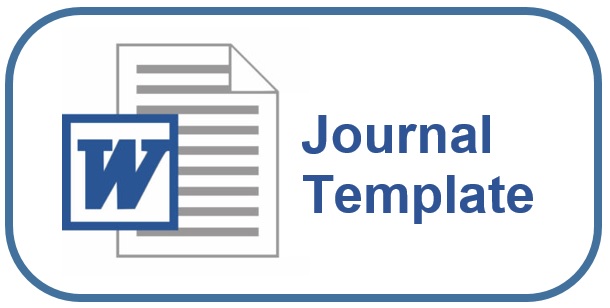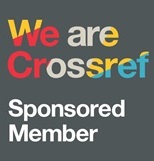Penguatan Konsep Bernalar pada Pembelajaran Matematika Melalui Workshop Matematika Bagi Guru Segugus II Leuwiliang Bogor
DOI:
https://doi.org/10.36277/abdimasuniversal.v6i2.537Keywords:
reasoning concept, area of plane figures, mathematics learningAbstract
Mathematics requires unique teaching strategies so that abstract things that are never seen in real life can be rationally accepted by students, especially at the elementary school level. So students must be given the opportunity to learn through meaningful experiences so that they are able to understand concepts correctly. Reasoning mathematics learning means that the thinking process occurs when learning mathematics. Active involvement of students in the learning process is an absolute requirement for the ability to interpret basic concepts in mathematics. The basic concepts understood will be internalized as long-term mathematical knowledge. How to explain the concept of area of flat shapes to students is a challenge for elementary school teachers. This service activity aims to reinforce to teachers the importance of the concept of reasoning in mathematics learning. The partners for this community service activity are Public Elementary Schools in Cluster II, Leuwiliang District, Bogor Regency, which consists of 6 Public Elementary Schools. Through this activity, it is hoped that teachers will continue to develop their competencies and increase their capacity so that they become professional teachers. The service activities went well, the activity participants gave positive responses and stated that the training was very useful for improving teachers' professional competence and the quality of mathematics learning.
Downloads
References
Afsari, S. dkk. (2021). Systematic Literature Review: Efektivitas Pendekatan Pendidikan Matematika Realistik pada Pembelajaran Matematika. Indonesian Journal of Intellectual Publication, 1(3), 189-197.
Akuba S.F., Dian P., & Robby F. (2022). Pengaruh Kemampuan Penalaran, Efikasi Diri, dan Kemampuan Memecahkan Masalah terhadap Penguasaan Konsep Matematika. Jurnal Nasional Pendidikan Matematika, 4(1), 44-60.
Kemdikbudristek. (2022). Capaian Pembelajaran Mata Pelajaran Matematika Fase A - Fase F. Kementrian Pendidikan, Kebudayaan, Riset, dan Teknologi RI.
Letrud K. & S. Hernes. (2018). Excavating The Origins Of The Learning Pyramid Myths. Cogent Education, 5, 1518638.
Maulana, I. & Leonard. (2018). Pendekatan Konstruktivisme dengan Strategi Pembelajaran Tugas dan Paksa. Prosiding Seminar Nasional dan Diskusi Panel Multidisiplin Hasil Penelitian & Pengabdian kepada Masyarakat. FMIPA Univeraitas Indraprasta PGRI, 404-416.
Maulyda, M. Archi. (2020). Paradigma Pembelajaran Matematika Berbasis NCTM. Malang: CV IRDH.
Milkhaturrohman, Sastya Da Silva, & Ahmad Wakit. (2022). Analisis Kesulitan Belajar Matematika Materi Bangun Datar di SDN 2 Mantingan Jepara. Mathema Journal, 4(2), 94-106.
Nasution, M. (2022). Literasi Matematika Menurut NCTM (National Council of Teachers of Mathematics). https://www.uinsyahada.ac.id/literasi-matematika-menurut-nctm-national-council-of-teachers-of-mathematics/6/, dipublish 15 September 2022.
Prihandoko, A.C. (2005). Memahami Konsep Matematika Secara Benar dan Menyajikannya dengan Menarik. Dirjendikti. Depdiknas.
Puti, D. & Andriani, S. (2020). Belajar Matematika Gernas Tastaka (Bernalar dan Kontekstual). Indramayu: YM Publishing.
Putrawangsa, S. & Hasanah, U. (2022). Analisis Capaian Siswa Indonesia pada PISA dan Urgensi Kurikulum Berorientasi Literasi dan Numerasi. Edupedika Jurnal Studi Pendidikan dan Pembelajaran, 1(1), 1-13.
Sartika, S. & Fitri, N. (2023). Workshop Peningkatan Kompetensi Guru Melalui Pembelajaran Kontekstual dan Bermakna Di SD Muhammadiyah 2 Sidoarjo. Selaparang: Jurnal Pengabdian Masyarakat Berkemajuan, 7(1).
Susanto, A. (2013). Teori Belajar dan Pembelajaran di Sekolah Dasar. Jakarta: Kencana.
Ulfah, M. & Felicia, L. (2019). Pengembangan Pembelajaran Matematika dalam National Council of Teachers of Mathematics (NCTM) pada Anak. Jurnal Equalita, 1(2), 127-143.





















